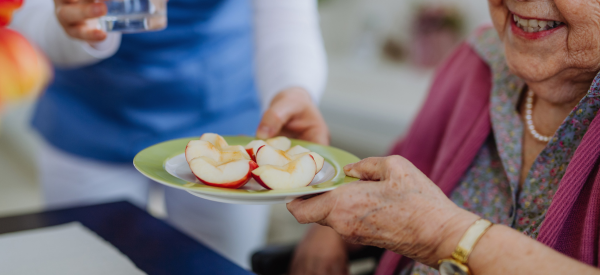Most people with Alzheimer’s would agree that one of the unfortunate effects of the disease is its ability to rob them of their quality of life.
And what one person considers “quality of life” may not be same as the next person.
Some may lose the ability to remember or make sound choices and decisions, while others might experience a decline in their physical or emotional health.
There are older loved ones who may not have the desire to participate in activities or do the things that they used to do like attending religious services, going to sporting events or dating and even meeting new people.
But it’s important to understand that even though your senior might exhibit a decline in skill, interest or aptitude, they’re still very much the same person inside.
Research affirms this: despite the physiological and psychological changes, dementia patients still maintain a sense of self and have the capacity to experience a full life.
But it’s a choice.
If you or your loved one desire to improve the quality of your life, here are a few things Freedom Home Care found that can help you make the most of it.
Finding Support
There are many effective resources, communities and support groups designed to help facilitate the process. A recent discussion that took place involving dementia patients, caregivers and professionals of Alzheimer’s Disease International, revealed that being pain free, well- fed, physically active, well-groomed, and not over-medicated were some of the things seniors with the disease felt added to their quality of life.
Also mentioned was the need to participate in ‘cognitive rehabilitation’ in order to encourage memory, while offsetting memory loss.
Communicating Effectively
Learning how to communicate with your loved one is also important because it lets them know that conversations with them are still meaningful and what they have to say matters. Experts recommend things like speaking slowly, making a few points at a time, smiling, holding hands and making eye contact when talking to your senior.
Exercising Regularly
Exercise is proven to help slow or delay the decline in cognitive ability, lower stress, and help improve depression. According to studies, physical activity for about 20 to 30 minutes a day can protect brain.
Putting Their Needs First
Other things that can make a difference include providing a safe and familiar living space, offering in-home care or personalized elder care that highlights your senior’s abilities, and hobbies and activities that bring them pleasure.




